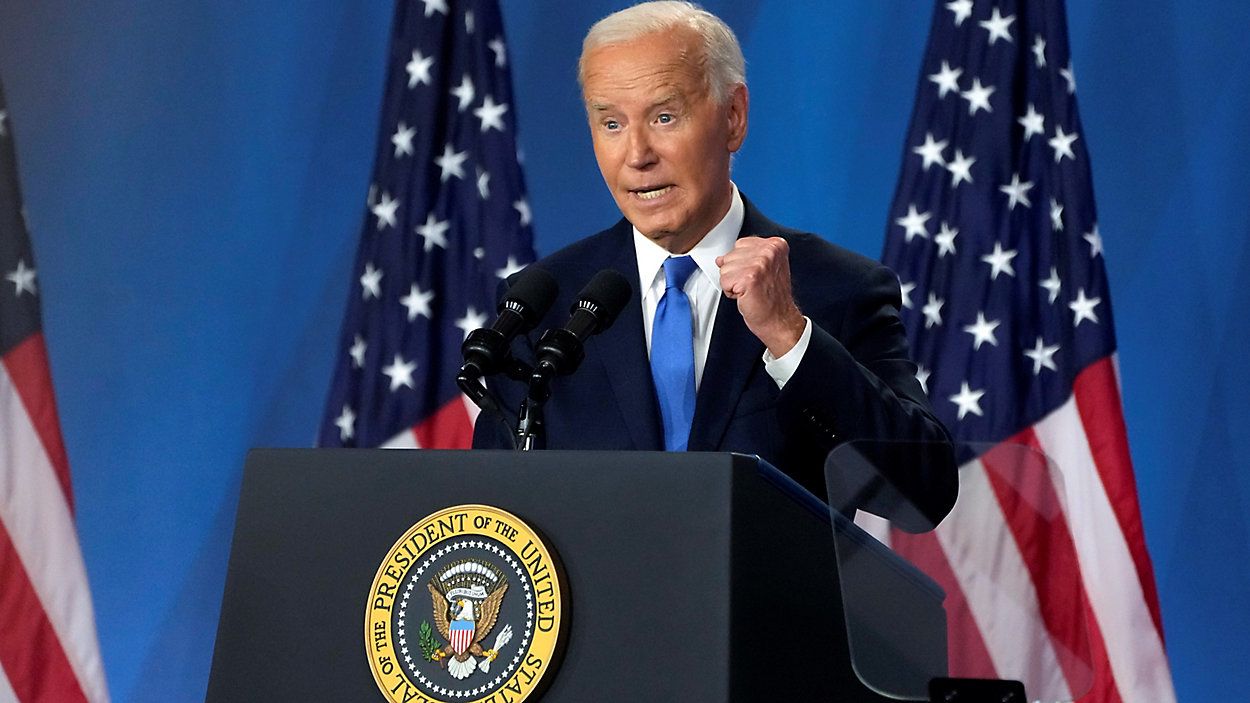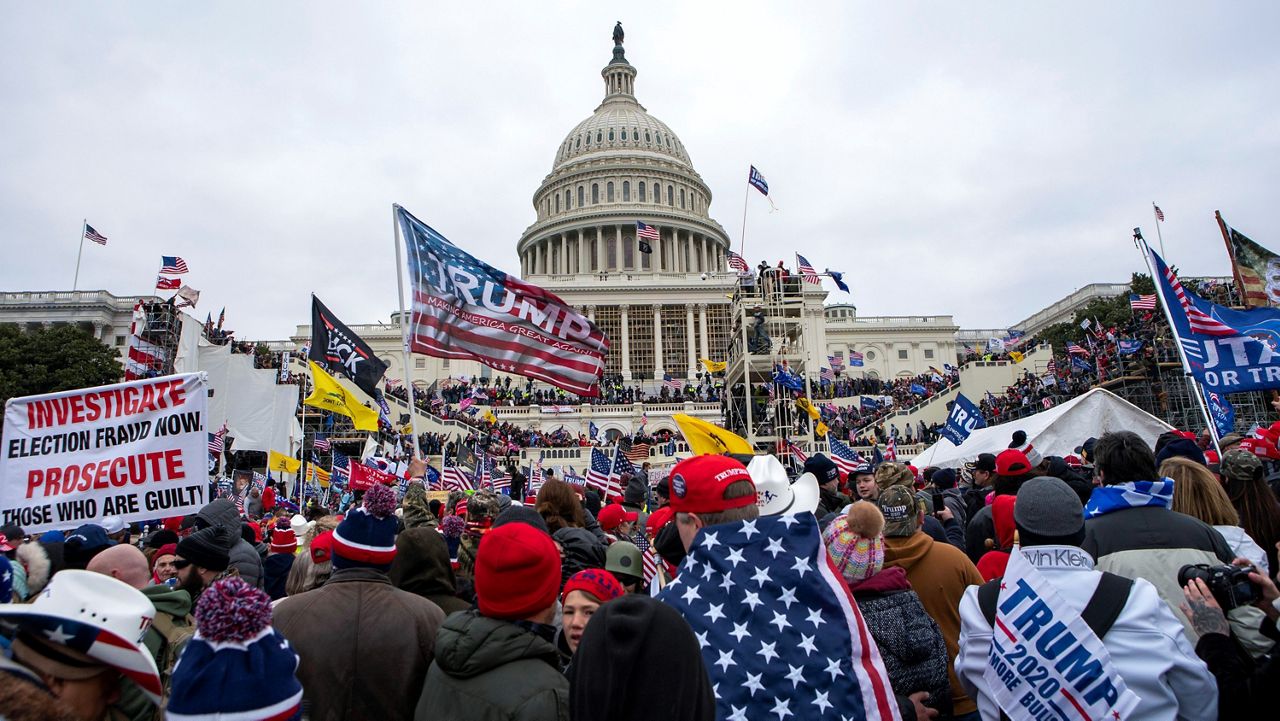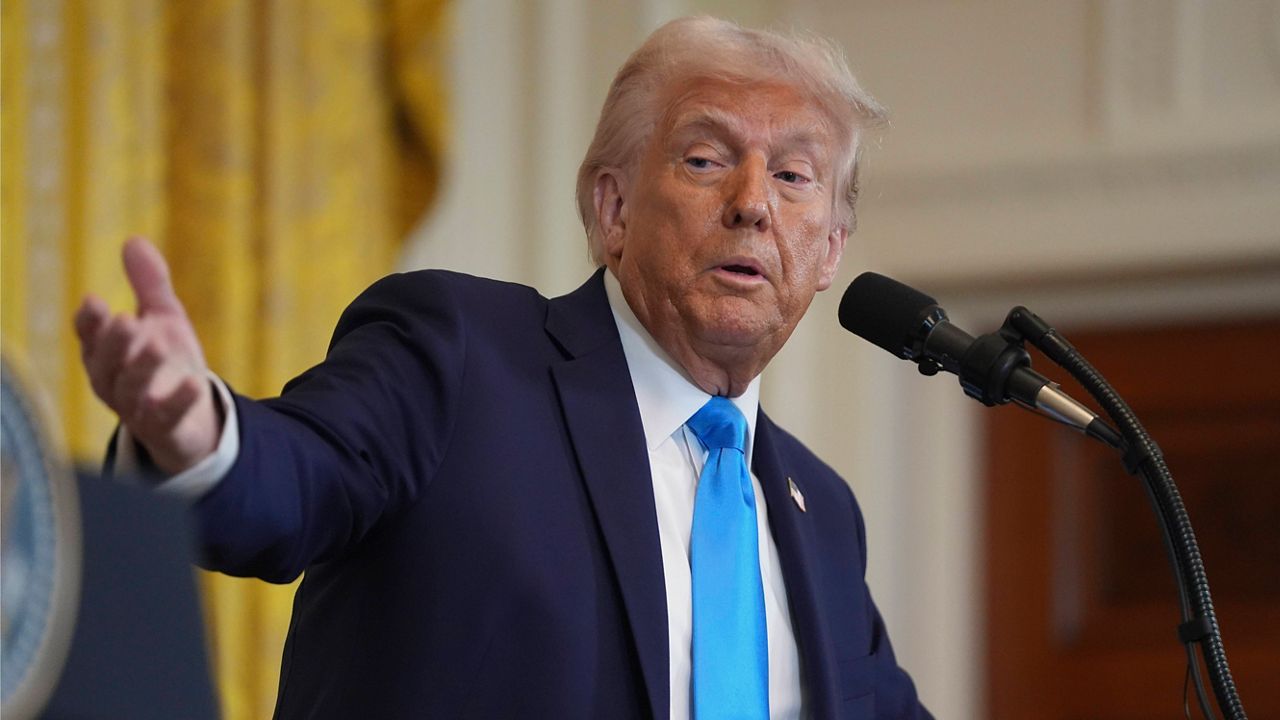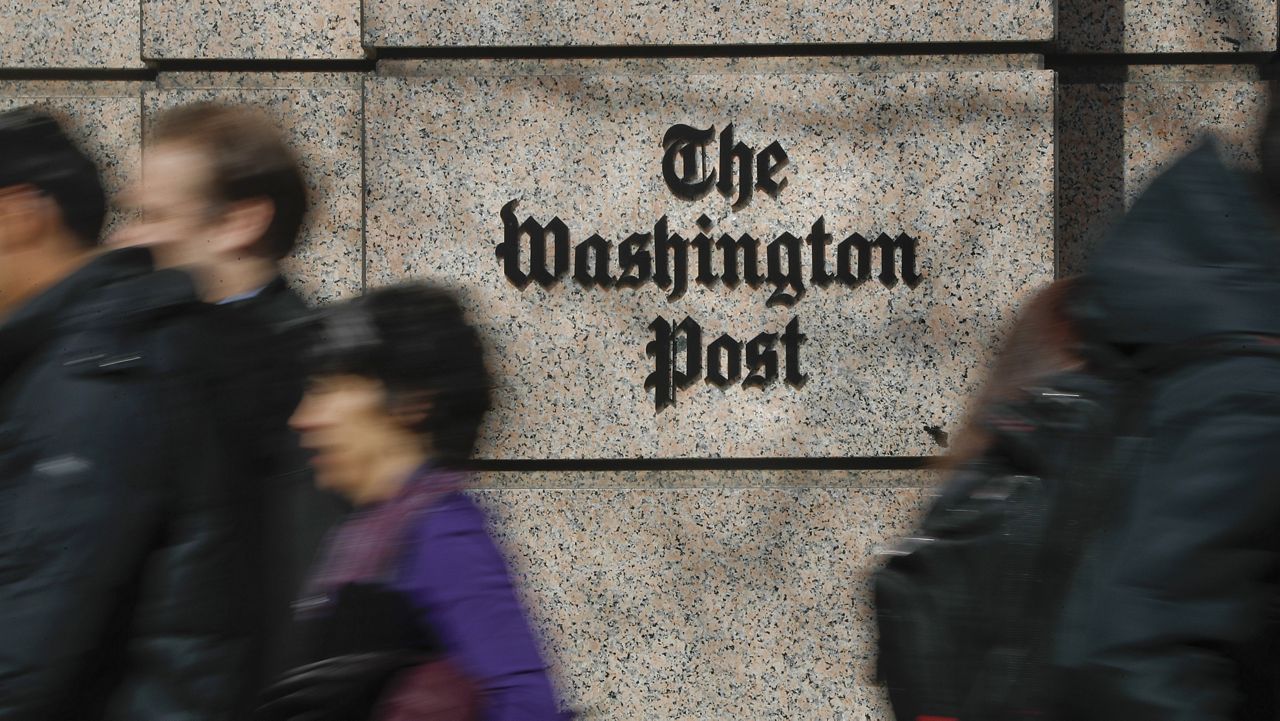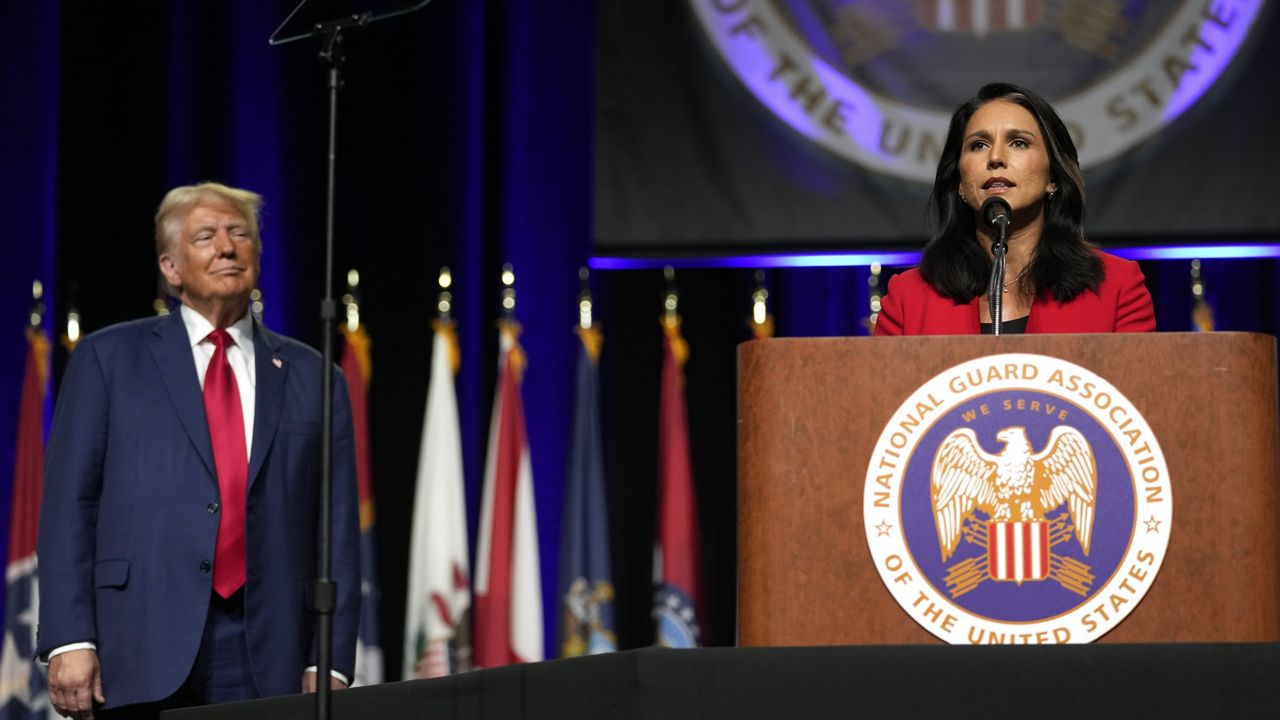On September 18, 2020, Supreme Court Justice Ruth Bader Ginsburg — a titan of the high court and a liberal icon — died from complications of pancreatic cancer at the age of 87.
Ginsburg’s death, just weeks before the 2020 presidential election, kicked off an incredibly busy period in American politics, including then-President Donald Trump’s naming of Amy Coney Barrett to succeed her at a White House Rose Garden ceremony at the height of the COVID-19 pandemic, a debate between Trump and Joe Biden, Trump’s own coronavirus diagnosis and hospitalization, and, of course, the election itself on Nov. 3, 2020, a winner of which was not projected until days later.
The 25 days between Biden’s debate with Trump and his exit from the 2024 presidential race have arguably been even more seismic, including an assassination attempt on Trump, a convention officially coronating him with his third GOP nomination, multiple sit-down interviews for the president to try and reassure panicked members of his party, and a slew of Democrats voices coming out of the woodwork calling for Biden to step aside, both publicly and privately.
Here’s a look back at the 25 days that rocked the political landscape:
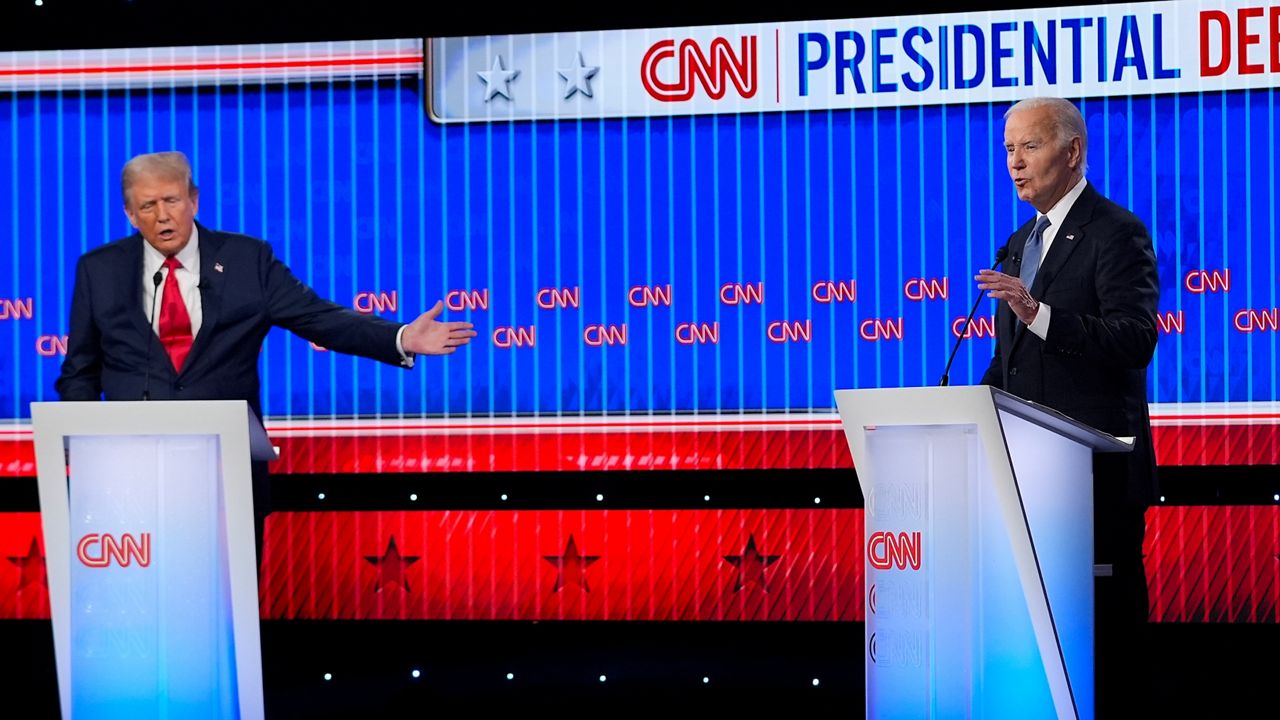
President Biden debates former President Trump at CNN’s studios in Atlanta, the first of two scheduled this cycle.
Immediately, Biden’s hoarse, quiet voice and meandering answers led his campaign to put out a statement to news outlets that he had a cold — but the damage was done, sparking panic among Democrats and beginning speculation that he might step down from the ticket.
While Trump espoused numerous falsehoods at the debate, all the talk was about Biden’s performance.

Biden held a rally in Raleigh, North Carolina, where he sought to assuage fears that he was up to the task of winning a second term.
"I know I'm not a young man, to state the obvious: Folks, I don't walk as easy as I used to. I don’t speak as smoothly as I used to. I don’t debate as well as I used to,” Biden said told his supporters in the Tar Heel State. “But I know what I do know: I know how to tell the truth.”
“I know right from wrong and I know how to do this job,” the president continued, telling the crowd: “When you get knocked down, you get back up.”
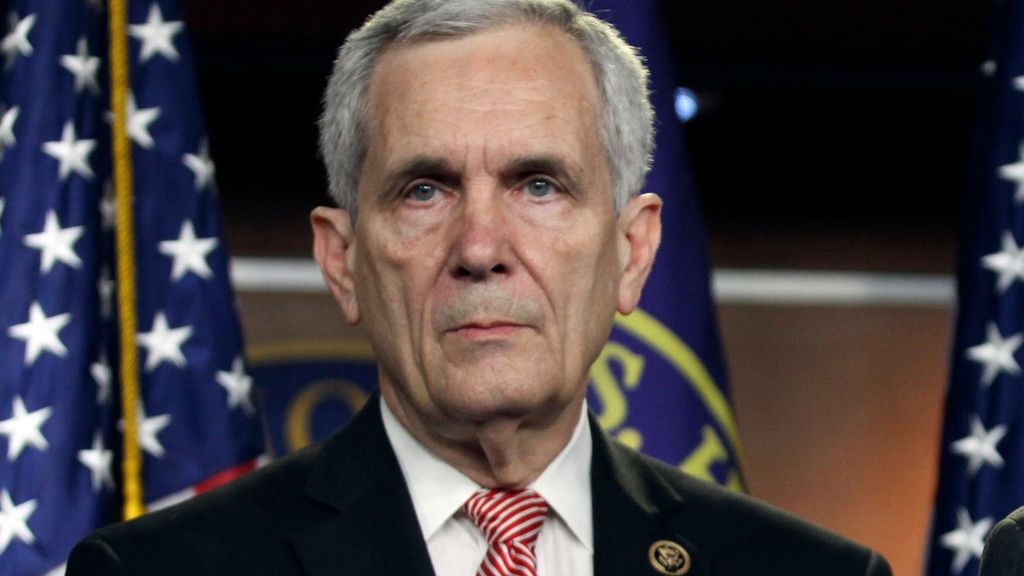
Texas Rep. Lloyd Doggett became the first sitting Democratic lawmaker to urge Biden to exit the presidential race, hailing his accomplishments as president while expressing concern that his debate performance showed he may not be up to the task of defeating Trump.
"Stepping up to lead a Nation in crisis, President Biden helped rebuild our country from the devastation of a pandemic, an insurrection, and years of Trump wreckage," Doggett, who has served in the House of Representatives since 1995 and is in his 15th term, said. "Yet, for more than a year, many Americans have indicated dissatisfaction with their choices in this election. President Biden has continued to run substantially behind Democratic senators in key states and in most polls has trailed Donald Trump.
"I had hoped that the debate would provide some momentum to change that," he continued. "It did not. Instead of reassuring voters, the President failed to effectively defend his many accomplishments and expose Trump’s many lies."
“My decision to make these strong reservations public is not done lightly nor does it in any way diminish my respect for all that President Biden has achieved,” Doggett said in a statement. “Recognizing that, unlike Trump, President Biden’s first commitment has always been to our country, not himself, I am hopeful that he will make the painful and difficult decision to withdraw. I respectfully call on him to do so.”
He would be the first of many Democrats to urge Biden to step aside in the days to come.
Sitting down with ABC News’ George Stephanopoulos in his first televised interview since the debate, Biden called the debate a “bad episode” and declaring that only "the Lord Almighty" could make him leave the race for the White House.
Stephanopuolos then asked why Biden, who spent nearly a week at Camp David preparing ahead of the debate, was exhausted.
"Because I was sick. I was feeling terrible. Matter of fact, the docs with me, I asked if they did a COVID test, and we’re trying to figure out what’s wrong," Biden said. "They did a test to see whehter or not I had some infection, virus. I didn’t, just had a really bad cold."
He repeatedly asserted that his current poor standing in polls and approval ratings will translate to a loss, and a Trump victory, in November. The polls and prognosticators had been wrong before, even recently, he said. ("The Red Wave was coming. Before the vote, I said, 'that’s not going to happen' … we did better than almost any incumbent president has ever done," Biden said of the 2022 midterm election.)
Biden, when asked, said he believed he had the mental and physical capacity to continue serving as president until 2028.
It was one of many events the Biden campaign plotted to try and change the discourse after the debate.
In a phone interview with MSNBC’s “Morning Joe,” Biden vowed: “I’m not going anywhere.”
He railed against the so-called “elites” in the party attempting to push him aside.
“They know so much more,” he said, sarcastically. “If any of these guys don’t think I should run, run against me. Go announce for president, challenge me at the convention.”
Earlier that day, Biden sent a two-page letter to Democrats on Capitol Hill, telling them he has no intention of leaving the race and declaring it is time for the post-debate questions of how the party should move forward – which he notes have been “well-aired" for over a week – to end.
“Any weakening of resolve or lack of clarity about the task ahead only helps Trump and hurts us,” Biden argued in the letter. “It is time to come together, move forward as a unified party, and defeat Donald Trump.”
Biden, in the letter, also sought to reassure Democrats that he has heard the concerns and “good faith fears and worries about what is at stake in this election.”
“I am not blind to them,” he wrote. “Believe me, I know better than anyone the responsibility and the burden the nominee of our party carries.”
“I can respond to all this by saying clearly and unequivocally: I wouldn't be running again if I did not absolutely believe I was the best person to beat Donald Trump in 2024,” the president wrote.
Biden also hopped on a campaign call with donors that day, during which he stressed the need to move on from the debate.
"The Democratic Party has spoken. The Democratic nominee is me. And I’m going to be the nominee of the party," he said on the call. "We can’t waste any more time being distracted."
He also emphasized the need to put the focus back on Trump.
"I have one job, and that’s to beat Donald Trump," the president said. "I’m absolutely certain I’m the best person to be able to do that."
Lawmakers returned from Washington that day and faced questions about Biden’s condition. Some, like New York Rep. Alexandria Ocasio-Cortez, said that “the matter is closed” and offered her full support; others, like Washington Rep. Adam Smith, the top Democrat on the House Armed Services Committee, who urged Biden to "take a step back" from the ticket and called for Vice President Kamala Harris to take his place atop the ticket.
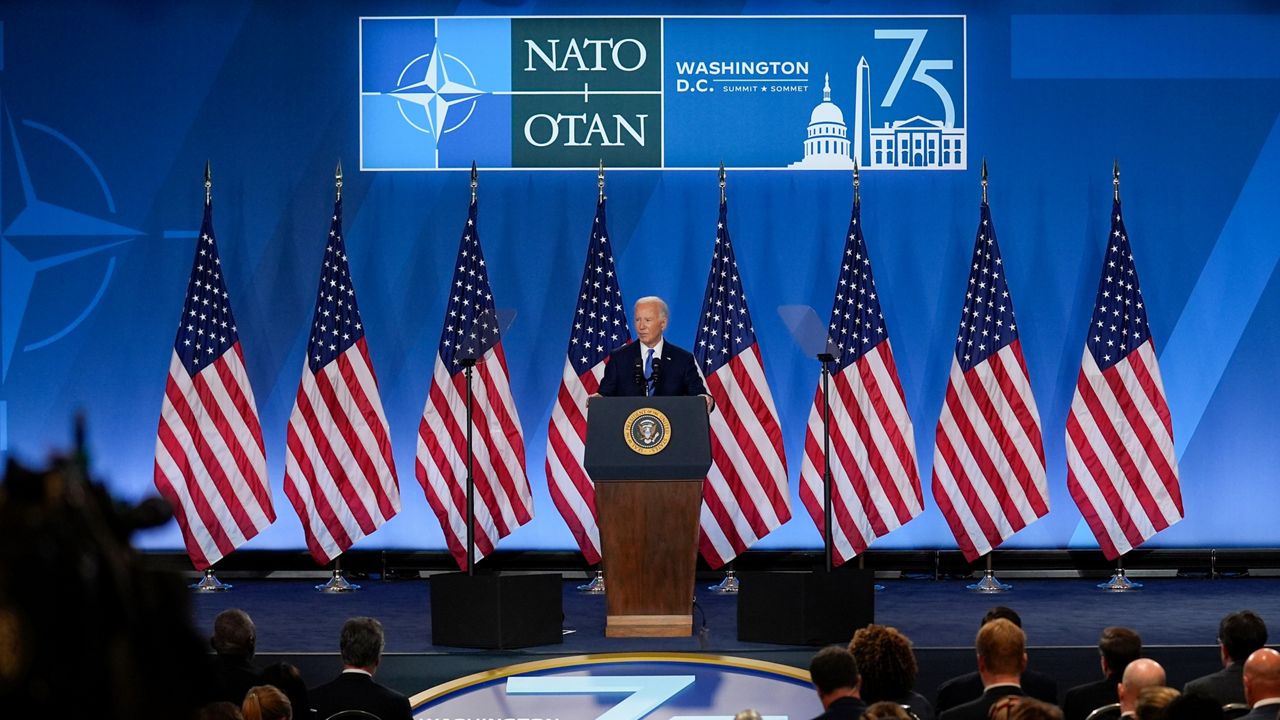
Biden takes part in the NATO summit in Washington, which culminates in the president holding a solo press conference, another event aimed at proving his detractors wrong.
While he did make a couple of flubs, notably mistakenly calling Ukrainian President Volodymyr Zelenskyy "President Putin" and referring to Vice President Harris as "Vice President Trump," Biden was praised for providing cogent answers about complicated foreign policy issues.
This press conference was an opportunity for Biden to demonstrate policy competence that escaped him throughout major portions of the debate — and in many cases, he passed, covering broad strokes and smaller nuances on foreign defense, policy and diplomacy matters, particularly with regard to Ukraine, Russia and China.
Though the press conference wasn’t a cure-all — multiple Congressional Democrats joined the chorus of calls for Biden to step down from the ticket shortly after it concluded — it was another part of the labor the incumbent Democratic president has undertaken to convince members of his party and American voters that he’s still able to perform his presidential duties.
"I mean, my schedule has been full-bore," Biden said of his recent slew of events, both prior to the debate – which included international travel – and after. "Where’s Trump been? riding around in his golf cart, filling out a scorecard?"
When asked to talk about his confidence in Harris, a logical successor should he step down from the ticket, Biden acknowledged a previous comment that she would be ready to serve “on day one,” adding that she has the ability “to handle almost any issue on the board.”
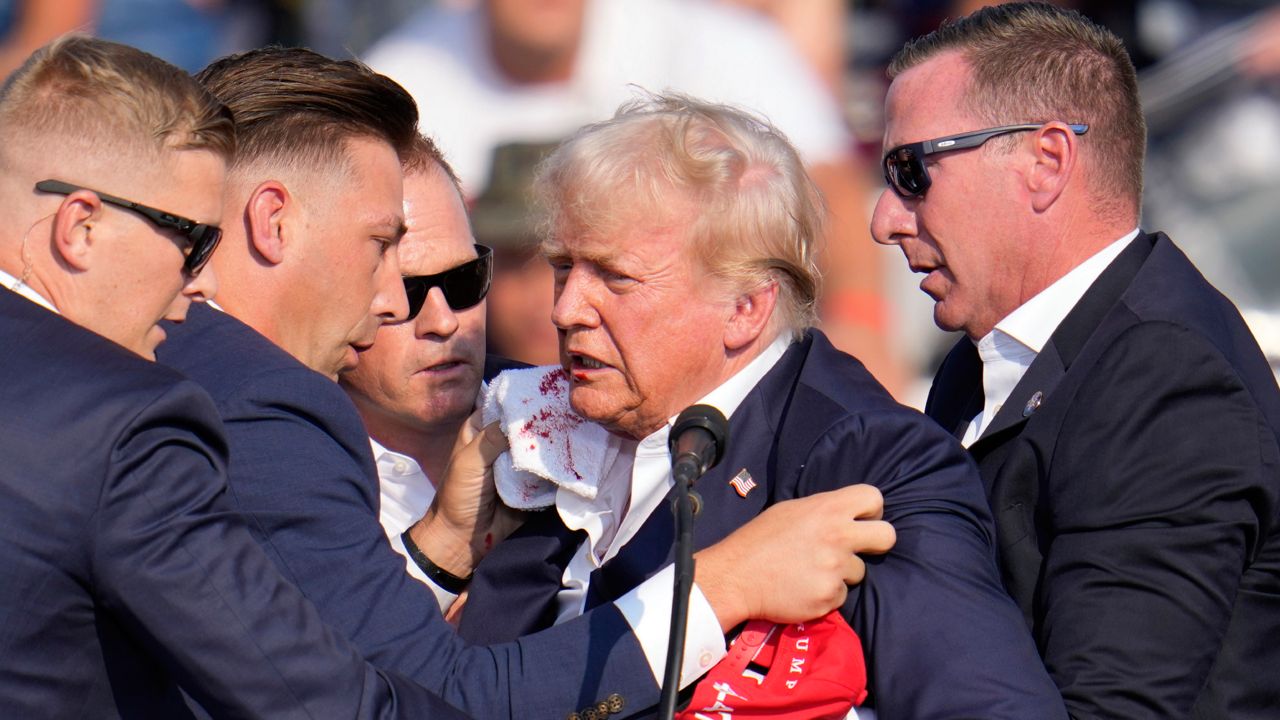
Trump is wounded in an assassination attempt at his Pennsylvania rally, a shooting which also left one attendee dead and two others injured.
Biden, speaking from Delaware, condemned the attack on his rival, saying that there is "no place in America for this kind of violence."
"It’s sick," the president said from Rehoboth Beach, Delaware. "It’s sick."
Biden and Trump spoke that night by phone.
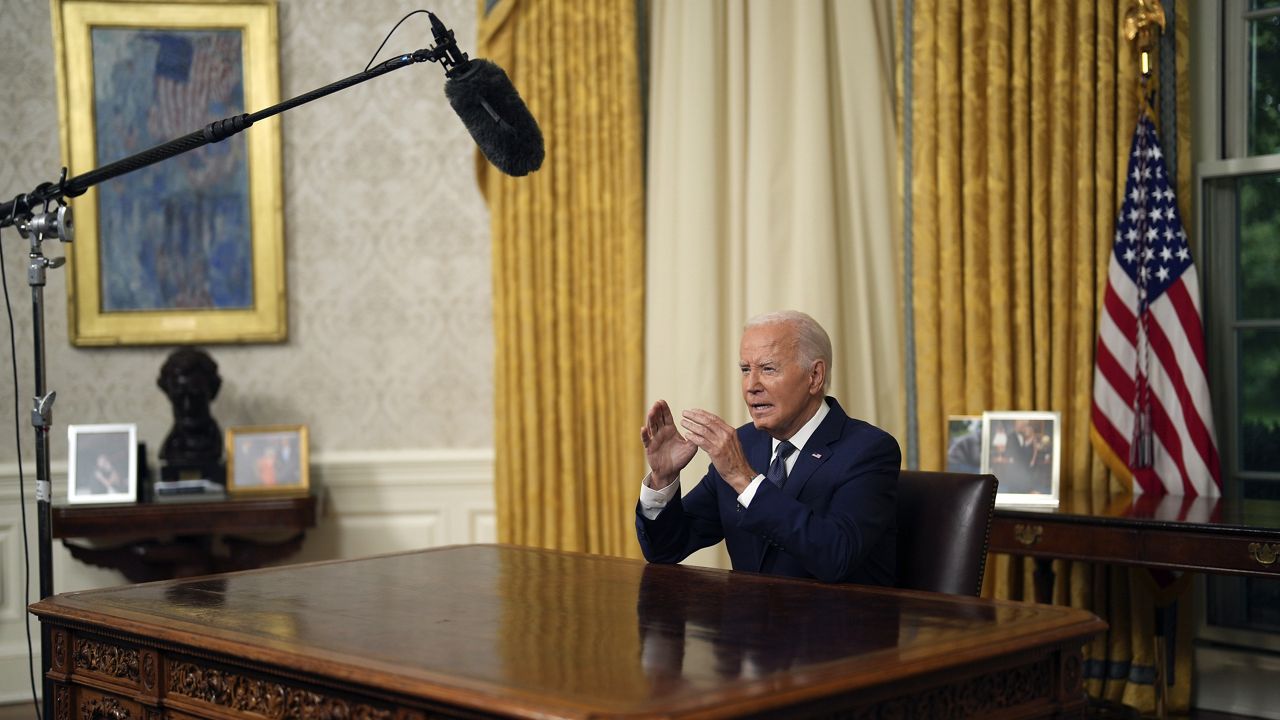
Biden orders an independent review of the Trump shooting, urging Americans not to "make assumptions" about the gunman's motives or affiliations as the FBI investigates.
"I've directed an independent review of the national security at yesterday's rally to assess exactly what happened, and we'll share the results of that independent review with the American people as well," Biden said from the White House, standing alongside Vice President Kamala Harris, Attorney General Merrick Garland and Homeland Security Secretary Alejandro Mayorkas.
"We must unite as one nation," he said. "We must unite as one nation to demonstrate who we are."
Later that night, Biden delivered an Oval Office address to the nation, during which he condemned political violence and stressed the need to "lower the temperature in our politics".
"In America, we resolve our differences at the ballot box," Biden said in his prime time remarks. "Not with bullets. The power to change America should should always rest in the hands of the people, not in the hands of a would-be assassin."
Biden began his roughly six-minute address by saying that Saturday's shooting "calls on all of us to take a step back" and figure out how to move forward as a country.
"Remember, while we may disagree, we are not enemies," Biden said. "We're neighbors, we're friends, coworkers, citizens, most importantly we are fellow Americans. We must stand together.
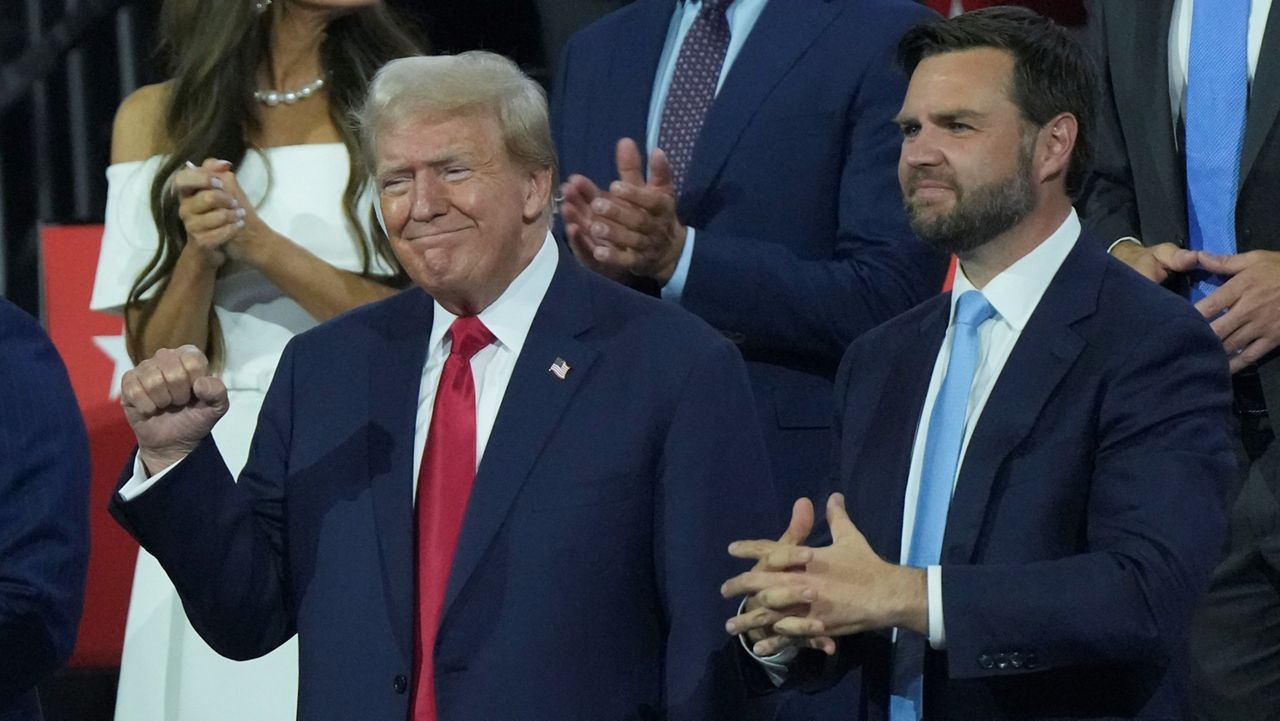
The Republican National Convention kicks off in Milwaukee, and Trump picks Ohio Sen. JD Vance to be his running mate.
In an interview with NBC News that day, President Joe Biden said it was a “mistake” to use the term “bullseye” in relation to former President Donald Trump while insisting he has not engaged in rhetoric that would incite violence.
“It was a mistake to use the word – I didn't mean, I didn't say crosshairs, I meant bullseye, I meant focus on him,” Biden said. “Focus on what he's doing. Focus on his policies, focus on the number of lies he told in the debate.”

Biden tests positive for COVID-19 ahead of a campaign event in Nevada and begins isolating at his home in Delaware.
California Rep. Adam Schiff, a prominent House Democrat, becomes the latest member of the party to urge Biden to step aside.
Meanwhile, Vance delivers his keynote address at the third night of the RNC.

Trump formally accepts his third Republican presidential nomination as the RNC concludes, delivering a rambling speech that deviated from his self-professed theme of unity following his shooting that became the longest nomination acceptance speech in U.S. history.
Trump, who said he would stress a message of “unity” following the attempt on his life, pledged to “launch a new era of safety, prosperity and freedom for citizens of every race, religion, color and creed.”
“The discord and division in our society must be healed, we must heal it quickly,” Trump said in a somber, subdued tone. “As Americans, we are bound together by a single fate and a shared destiny. We rise together, or we fall apart."
"I am running to be president for all of America, not half of America, because there is no victory in winning for half of America," he continued. "So tonight, with faith and devotion, I proudly accept your nomination for president of the United States.”
But that tone of unity didn’t last very long at all.
After recounting the assassination attempt in riveting detail, Trump — who on Thursday the first convicted felon to be a major political party’s nominee — quickly launched into a diatribe about the criminal prosecutions against him.
"We must not criminalize dissent or demonize political disagreement," Trump said, before veering into politics: "In that spirit, the Democrat Party should immediately stop weaponizing the Justice System and labeling their political opponent as an enemy of democracy, especially since that is not true. I am the one saving democracy.”
"If Democrats want to unify our country they should drop these partisan witch hunts," he added.
Throughout his remarks, which sounded less like a venerated keynote address and more like his typical freewheeling rally stump speeches, he attacked “crazy Nancy Pelosi,” charged that the world is “teetering on the edge of World War III,” claimed that countries are “emptying out their insane asylums” and sending them into the U.S., and falsely accused Democrats of “cheating on elections.”
Referring to the 2020 election, Trump vowed: “The election result, we're never going to let that happen again.”
Biden formally drops out of the race for president and endorses Harris, who receives dozens of endorsements and millions in campaign cash after the announcement.





